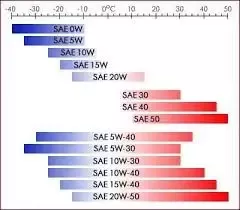When it comes to the performance and efficiency of your vehicle, the timing chain plays a crucial role. Many car owners wonder whether the timing chain affects the mileage of their vehicle. In this article, we will explore the relationship between the timing chain and fuel economy.
Understanding the Timing Chain
The timing chain is responsible for synchronizing the rotation of the crankshaft and camshaft in the engine. This synchronization ensures that the engine’s valves open and close at the right time during the intake and exhaust strokes. Unlike timing belts, which require periodic replacement, timing chains are designed to last the life of the engine.

Credit: www.reddit.com
Effects on Mileage
So, does the timing chain affect mileage? The answer is yes. A worn or stretched timing chain can have a direct impact on your vehicle’s fuel economy. When the timing chain becomes stretched, it can alter the engine’s timing, leading to inefficient combustion and reduced power output. As a result, the vehicle may experience increased fuel consumption and reduced mileage.
Symptoms of a Bad Timing Chain
There are several symptoms that may indicate a problem with the timing chain. These include unusual rattling noises from the engine bay, decreased fuel economy, rough engine idle, and illuminated warning lights on the dashboard. If you notice any of these signs, it’s essential to have your vehicle inspected by a qualified mechanic.

Credit: www.amazon.com
Preventive Maintenance
Regular maintenance and timely replacement of the timing chain can help prevent issues that may impact fuel economy. It’s important to follow the manufacturer’s recommended service intervals for inspecting and, if necessary, replacing the timing chain to ensure optimal engine performance and efficiency.
Expert Insights
According to industry experts, a new timing chain typically does not directly affect the mileage of a vehicle, unless the timing itself has been adjusted. However, a worn or stretched timing chain can lead to decreased fuel economy and performance issues. Therefore, it’s crucial to address any timing chain-related issues promptly to maintain optimal fuel efficiency.
Frequently Asked Questions
Does A Bad Timing Chain Affect Gas Mileage?
Yes, a bad timing chain can affect gas mileage. A stretched timing chain leads to increased friction, causing the engine to work harder and consume more fuel. This can result in reduced power at low speeds and an increase in fuel consumption.
Symptoms of a bad timing chain also include unusual sounds while the car is running, fast crank, and reduced engine performance.
How Many Miles Can A Timing Chain Last?
A timing chain can last the life of the engine. However, if the timing chain becomes stretched or damaged, it can affect fuel consumption and result in reduced power at low speeds. It is recommended to regularly maintain and inspect the timing chain to prevent any potential issues.
Can Timing Affect Mpg?
Timing can affect MPG. A bad timing chain that is stretched too much can lead to increased fuel consumption and reduced power at low speeds. It is important to address timing chain issues to maintain optimal fuel efficiency.
What Are The Symptoms Of A Failing Timing Chain?
Symptoms of a failing timing chain include rattling noise, sputtering performance, warning lights, engine misfires, and metal shavings in oil. These signs indicate immediate attention is needed to prevent further damage.
Conclusion
In summary, the timing chain plays a critical role in the overall performance and fuel economy of a vehicle. While a new timing chain may not directly impact mileage, a worn or stretched timing chain can lead to increased fuel consumption and reduced power output. Regular maintenance and timely replacement of the timing chain are essential to ensure optimal engine performance and efficiency.
By understanding the importance of the timing chain and its impact on fuel economy, car owners can take proactive measures to maintain their vehicle’s efficiency and performance.


